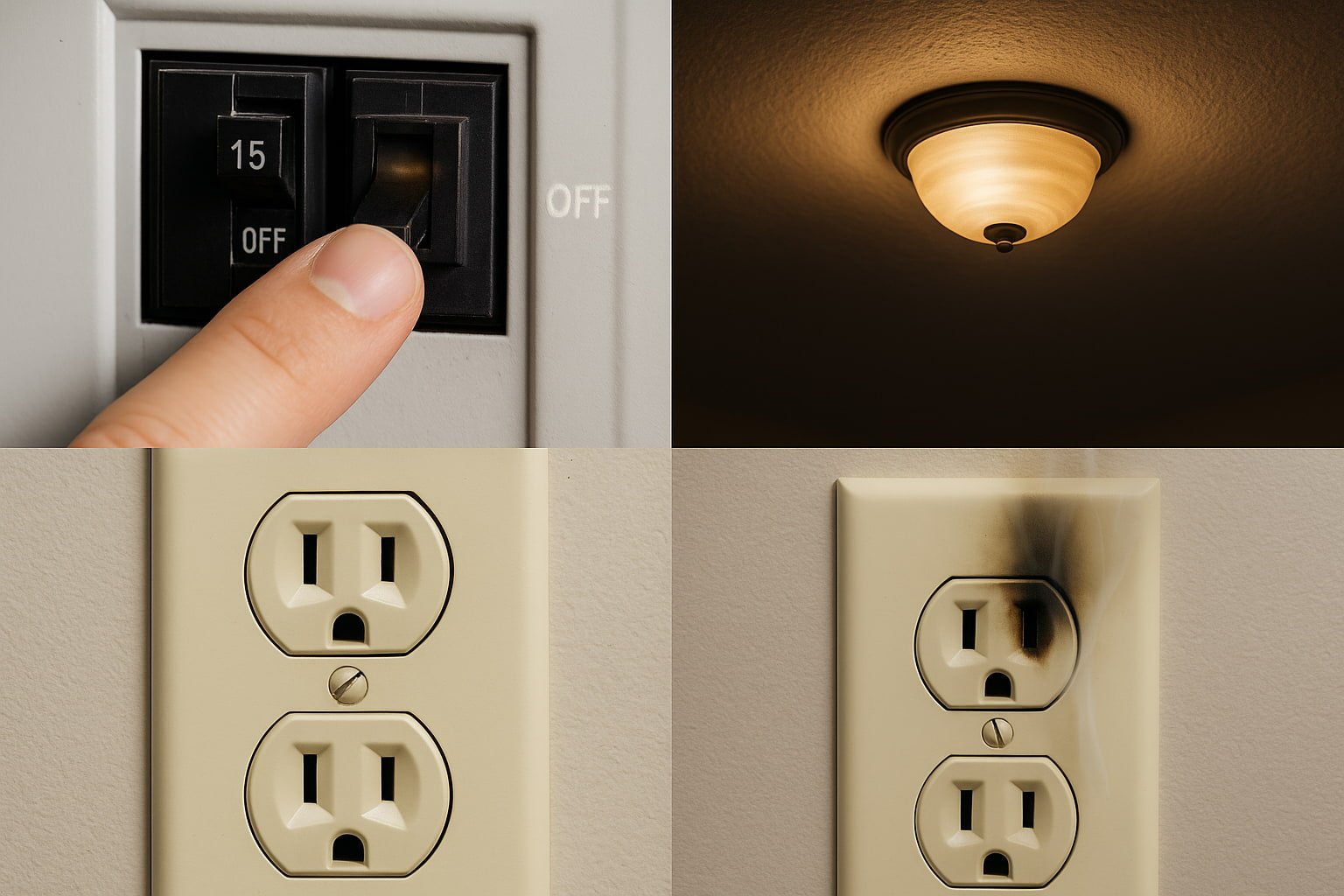Why Homeowners Should Care About Electrical Compliance Too

Homeownership comes with a long list of responsibilities from maintaining the roof to ensuring your plumbing stays functional. However, one critical area often overlooked is electrical compliance. Many homeowners are unaware of their obligations regarding electrical systems, which can lead to safety concerns, financial liabilities, and potential legal trouble.
This blog will explore why electrical compliance matters for homeowners, the potential risks of neglecting it, and practical steps to ensure your property meets all necessary standards. If you’ve never thought about the electrical compliance of your home, now is the time to start.
What Is Electrical Compliance?
Electrical compliance refers to ensuring that all electrical installations, wiring, and systems in a property meet local, state, or national electrical safety standards. These standards are in place to protect people and property from electrical hazards, such as fires, shorts, or faulty wiring.
Compliance usually involves obtaining an Electrical Certificate of Compliance (ECC) or equivalent documentation from a licensed electrician after an inspection or electrical work. This certificate verifies that your home’s electrical system is safe and up to code.
Why Does Electrical Compliance Matter?
Electrical compliance isn’t just a technicality; it has real-world implications that affect your safety, finances, and legal obligations.
1. Safety First
Faulty electrical systems are one of the leading causes of residential fires. According to the National Fire Protection Association (NFPA), electrical failures or malfunctions were involved in an estimated 33,900 home fires in the U.S. from 2015-2019, causing significant damage and loss of life. Electrical compliance ensures that your wiring, outlets, and circuits are functioning as intended, reducing the risk of fires and electrical shocks.
2. Insurance Liability
Many insurance companies require that your property meet electrical compliance standards to qualify for coverage. Non-compliance could lead to claim rejections in the event of electrical fires or accidents, leaving homeowners responsible for repair costs and damages.
3. Maintaining Property Value
If you plan to sell your home, electrical compliance is non-negotiable. Prospective buyers typically request electrical compliance certificates during inspections. A failure to provide proof can delay sales or force you to invest in expensive upgrades to meet compliance requirements.
4. Legal Obligations
Homeowners are legally required to ensure that their properties adhere to safety regulations. Failing to comply with electrical standards can lead to fines, legal action, or forced property inspections.
Warning Signs of Non-Compliant Electrical Systems
Electrical compliance isn’t just for homes with outdated systems. Even relatively new properties can experience issues over time. Keep an eye out for these signs of potential non-compliance or electrical issues in your home:
- Frequent circuit breaker trips
If your circuit breaker trips multiple times a week, it may indicate an overloaded system or faulty components. Both are red flags for non-compliance.
- Flickering or dimming lights
This issue could be caused by loose connections, voltage fluctuations, or circuit overloads.
- Unusual smells
Burning odors near outlets or panels could indicate overheating or faulty wiring.
- Warm outlets or switches
Outlets and switches should never feel warm to the touch.
- Two-pronged outlets
Older homes may still have ungrounded, two-pronged outlets, which are not compliant with modern safety standards.
- DIY Electrical Work
If previous owners conducted unlicensed electrical work, there’s a chance the property is not code-compliant.
How to Ensure Your Home Is Electrically Compliant
If you suspect your home may not meet electrical safety standards, take proactive steps to address the issue. Here's a step-by-step guide to ensure compliance:
1. Schedule an Electrical Inspection
Engage a licensed electrician to conduct a thorough inspection of your electrical system. They will assess the wiring, circuit panels, outlets, and fixtures to ensure everything adheres to current regulations.
2. Request an Electrical Certificate of Compliance (ECC)
After the inspection, request an ECC from your electrician. This document certifies that your home meets safety standards, providing peace of mind for you, your family, and potential buyers.
3. Upgrade Outdated Systems
Older homes with outdated wiring or panels may need an upgrade. Replace aluminum or knob-and-tube wiring with modern alternatives, and ensure your circuit breaker has sufficient capacity to handle your household’s electrical demands.
4. Install Safety Features
Consider installing additional safety devices like Ground-Fault Circuit Interrupters (GFCIs) in wet areas (bathrooms, kitchens) and Arc-Fault Circuit Interrupters (AFCIs) in bedrooms. These features are required by many building codes and enhance household safety.
5. Avoid DIY Repairs
Electrical work should always be performed by qualified professionals. DIY fixes may save a few dollars upfront but can result in serious safety risks and non-compliance penalties.
6. Regular Maintenance
Make electrical checks a part of your routine home maintenance. Preventive care can identify issues before they become serious hazards.
Additional Benefits of Staying Compliant
Aside from avoiding risks and meeting legal requirements, maintaining electrical compliance can have additional perks that enhance your experience as a homeowner:
- Energy Efficiency
Modern, code-compliant homes often feature updated wiring that supports energy efficient appliances, reducing utility bills over time.
- Smart Home Compatibility
Up-to-date electrical systems can accommodate smart home devices, making it easier to integrate advanced technology into your living space.
- Peace of Mind
Knowing that your home is safe for you and your family allows you to enjoy your space with full confidence.
Is Your Home Electrically Compliant?
Electrical compliance is one of those behind-the-scenes necessities that can’t be ignored. By ensuring your home meets safety standards, you protect not only your property value but the health and safety of everyone who calls it home.
If you already suspect compliance issues or are curious about the state of your electrical system, don’t wait to act. Contact a licensed electrician today to schedule an inspection and address potential problems before they escalate.
Remember, your home is one of your most important investments. By prioritizing compliance, you’re safeguarding it for the long term.